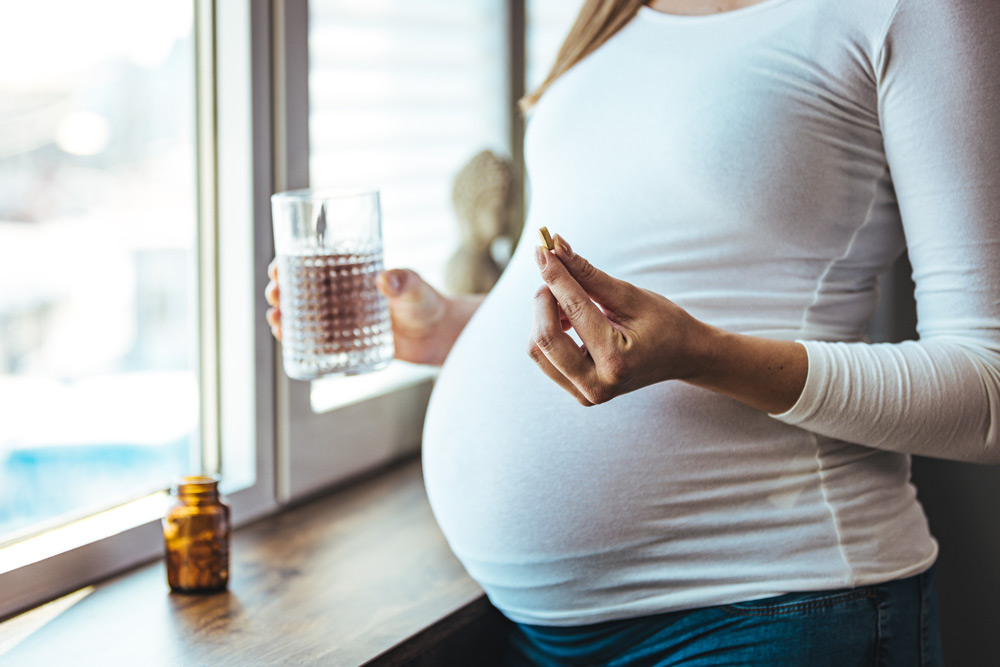Are Mental Health Medications and Marijuana Safe During Pregnancy?
Despite increasing awareness and reduced stigma around mental health, myths still exist regarding pregnancy, mental illness and medications to treat it.
Symptoms of mental illness and substance use are now the leading complication of pregnancy in the United States. At least one in five people will develop a psychiatric disorder when pregnant and during the first year after delivery. These disorders may include depression, anxiety or obsessive-compulsive disorder. Some more recent studies have even suggested that up to half of patients may screen positive for an anxiety disorder during this time!
We used to mistakenly think that pregnancy was a protective time for mental health and that the “postpartum” or “after delivery” period posed the greatest risk for mental health symptoms. We know now that many patients begin to experience psychiatric symptoms as early as the first trimester of pregnancy, and these often continue into the months following birth. Pregnancy can be difficult on the mind and body as new parents go through numerous changes.
After delivery, many will experience the “baby blues,” which may consist of rapid changes in emotions, inability to sleep and generally “not feeling right.” These issues usually resolve within the first two weeks after the baby is born. Symptoms that are always concerning, however, include persistent sadness, disinterest in being a parent or being pregnant, feeling very guilty and thoughts of no longer wanting to be alive.
Another common, and quite frightening, experience is “intrusive thoughts.” Intrusive thoughts are defined as sudden and unwelcome thoughts that are often distressing and worrisome. Parents may have recurring images of their child getting hurt or may be fearful that they may do something that puts their child in danger. Discuss these thoughts with a health care clinician, as they may be a symptom of a mental health disorder, such as anxiety.
Can I take medications for mental health during pregnancy?
There are many safe and effective treatments for mental health disorders during pregnancy and after delivery. Often treatment consists of therapy and medication. Many are surprised to learn that most medications used to treat psychiatric disorders are safe in pregnancy and breastfeeding! Because a medicine may still be “safe” and carry some risk, we do have a few principles for using psychiatric medications in pregnancy.
- The best time to plan is before pregnancy. We want to be proactive, rather than reactive. If you take any medication and may become pregnant, ask your clinician, “Can I take this medication in pregnancy?” If the medicine is more concerning in pregnancy, it may be a good time to try safer alternatives. Abruptly stopping medicine can cause discontinuation symptoms that may be severe and pose a risk of worsening mental health, so we always recommend you discuss with your clinician before stopping medication for mental health.
- Pregnancy is not a time for “trial and error.” If something is not broken, we do not try to fix it. If a medicine has been helpful and the safety information is acceptable, we recommend continuing that medication. We also want to make sure that we treat symptoms until they are gone or “in remission,” rather than leaving symptoms only partially addressed.
- Following that same thought, there is no such thing as “low dose” medication. Risks associated with medication in pregnancy do not depend on the dose of medication taken by the mother. Therefore, we use whatever dose necessary to control symptoms during pregnancy, whether that dose seems “low” or “high.”
Can I take marijuana or cannabis during pregnancy?
In the past year, cannabis has become legal for recreational use in Minnesota. Unfortunately, we have very few studies describing the effects of cannabis as a treatment for mental health symptoms. We have even fewer studies around the safety of cannabis products, both THC and CBD, in pregnancy and breastfeeding. What little data we do have, however, very consistently shows negative effects on pregnancy. Most concerning are longer-term studies that suggest that babies exposed to THC during pregnancy experience problems with memory, focus and attention once they are school-aged.
Smoking cannabis products around infants also carries risks of second-hand smoke exposure, such as breathing difficulties and sudden infant death syndrome (SIDS).
All professional societies recommend that parents not use cannabis products while pregnant or breastfeeding. At this point, we should think of cannabis and pregnancy in the same way we understand alcohol and pregnancy. Although alcohol is legal, there is no “safe amount” in pregnancy. Many who are using cannabis during pregnancy are doing so because they have some kind of symptom, such as pain, nausea, sleep problems or anxiety, that they hope cannabis will address. We recommend you discuss reasons for cannabis use with your health care team. Together you can develop a plan that may include ways to cut back on the amount and type of cannabis products used, as well as address problematic symptoms with strategies that have a more proven safety record during pregnancy.
